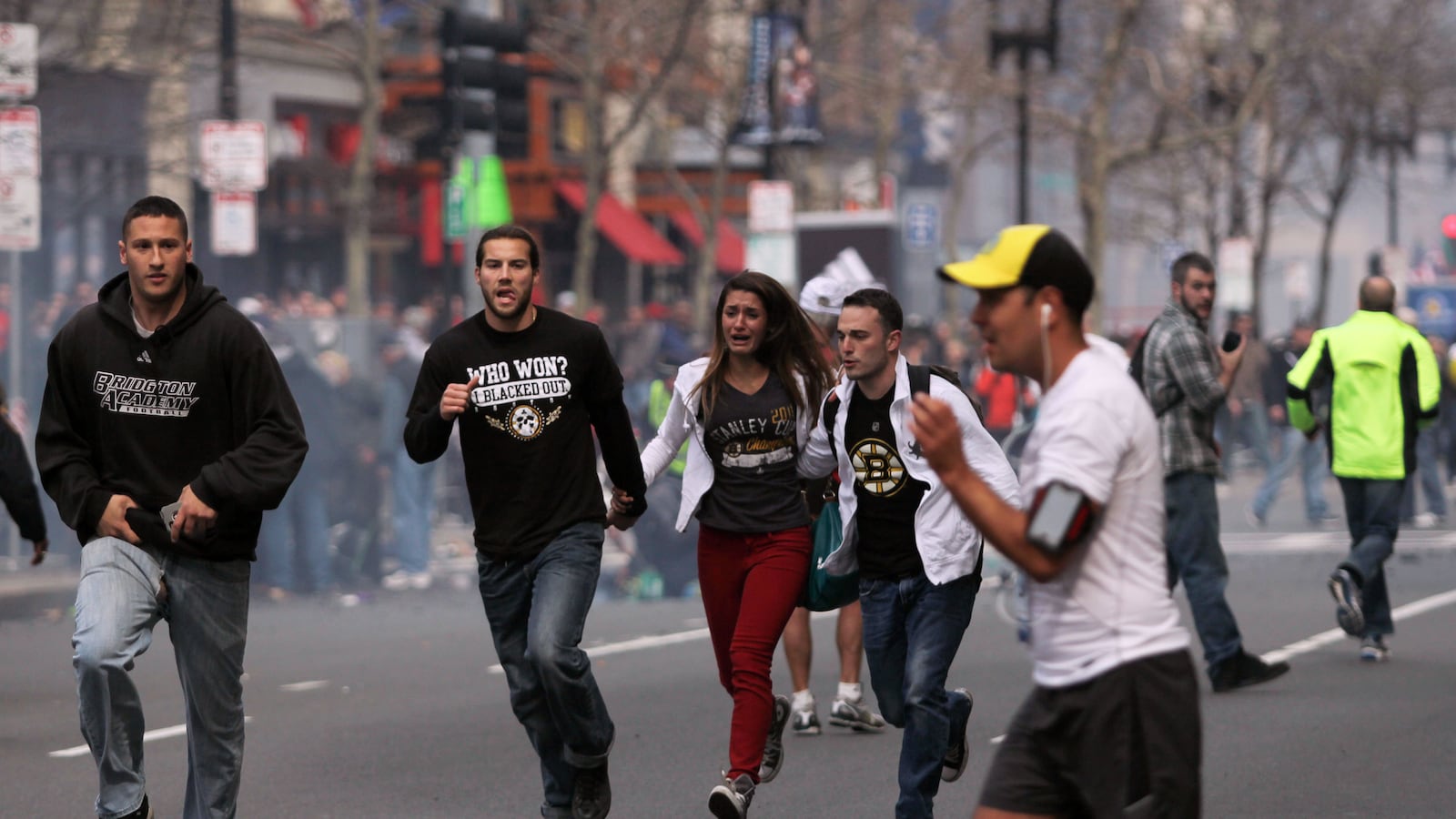It was evening in Cairo when news of Monday’s Boston Marathon bombing broke—a time when many Egyptians tune into TV talk shows. One popular program, Cairo Today, hosted by the famed presenter Amr Adeeb, often takes call-ins on the news of the day from Egyptians both at home and abroad. In the bombing’s aftermath, Adeeb began fielding calls from Egyptians in America who were reeling from the tragedy. The callers expressed horror and sympathy over the attacks—but also fear about what might happen if it turned out that a Muslim was to blame.

Watching Adeeb’s show at home in Cairo, the popular blogger Zeinobia, like many in Egypt, was battling similar concerns. Her first thoughts went to the victims, as she posted words of sadness alongside news of the blasts on her widely followed Twitter feed. But in the back of her mind, Zeinobia says, she also worried who the culprit might be. “I’m praying that he’s not a Muslim,” she says. “I just don’t want my religion being implicated any more in things like this, you know?”
Memories of the fallout from the 9/11 attacks, Zeinobia says, were suddenly fresh on her mind—like Adeeb’s callers, she was concerned about things like the potential for backlash against friends and family living in America, and the idea that some people would believe that Islam itself was to blame. “The implications of having a Muslim involved in this bombing could be very bad,” she says.
After the worst bombing on U.S. soil since 9/11, such sentiments, expressed alongside sadness and condolences, have been widespread.
“Boston explosions: ‘Please don’t be Arabs or Muslims,’” read the headline of an article by UCLA law professor Khaled A. Beydoun, which was published in al-Jazeera on Tuesday. Beydoun describes knots in his stomach as he waited for news of the culprit—a “gut-wrenching anxiety and debilitating concern” that he believes is common among Arab and Muslim Americans when an attack takes place in the States.
Another American Muslim, Hammad Moses Khan, writes of texts and emails among Muslim communities urging one another to be careful, and a common refrain: “No, not again—not another 9/11, not another decade of being hated.”
Beydoun calls such worries “a distinctly Arab and Muslim American psychosis.” But Ed Husain, a senior fellow in Middle Eastern studies at the Council on Foreign Relations, notes that in the wake of the Boston bombings, Muslims worldwide are paying close attention to the American response. “This generation of Muslims grew up in the shadow of 9/11,” he says. “The over-reaction by American society and government is a lived reality for millions of Muslims across the globe.”
U.S. authorities have announced no suspects in the attack, which killed three people and injured more than 170, and no one has claimed responsibility. But the hours following the bombing saw signs of a rush to judgment. On Twitter, many commentators noted that #Muslims had become a trending topic, while remarks such as a tweet from one conservative pundit suggesting that all Muslims should be killed quickly spread. At the same time, some news reports claimed that police had a “suspect”—a Saudi man who’d been injured in the blasts. Authorities later said the man was considered a witness. Speculation persisted even after the initial chaos died down. “Don’t talk to me about religion of peace—no way,” the conservative preacher Pat Robertson said Tuesday morning, hinting that Islam had played a role in the attack.
“It was worrying to observe that post-9/11 impulses are still alive,” Husain says.
Many observers in the Arab world took note. “The media is trying to make the world think, ‘Saudi = bomber,’” one Saudi commenter posted on Twitter, while Sultan al-Qassemi, an influential commentator based in Dubai, linked to news that two men had been removed from a plane at Boston’s Logan airport, apparently for speaking in Arabic. “Why I might cancel my U.S. trip this summer,” he wrote.
Husain notes that leading Muslim organizations in America were among the first to condemn the attack, and that many Muslim leaders abroad have done the same, something that could help to head off any anti-Muslim sentiment. But Ahmed Younis, a Los Angeles-based writer and analyst, says that for many Muslims, concerns over the culprit’s identity are based less on U.S. reactions than on the potential stain of having the attack carried out in Islam’s name. “Muslims are generally more outraged by the portrayal of Islam by other Muslims than they are by the portrayal of Muslims in the American media,” he says. “And the vast majority of people all over the world, regardless of their religion, are tired of violence.”
Another prominent Egyptian blogger, meanwhile, who writes under the handle Big Pharaoh, was on a visit to Manhattan when the Boston bombing struck—and he was surprised to see that the reaction of most Americans wasn’t finger-pointing or anger, but an eerie sense of calm. “I guess from what we’ve seen over the last 12 years, people somehow got used to such incidents. Sad but true,” he says.






